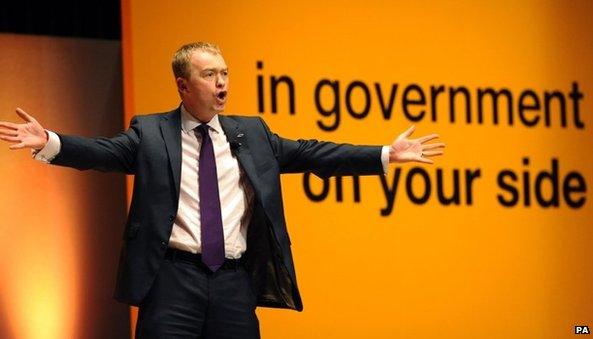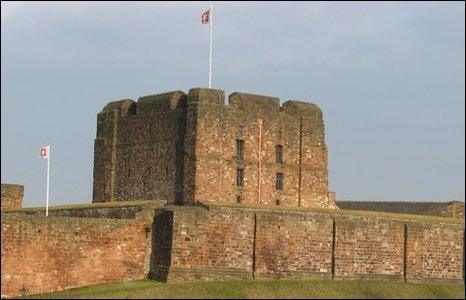Election 2015: Why North East & Cumbria could be vital
- Published
- comments
Political Editor Richard Moss looks at the battle ahead in a virtual House of Commons
The North East and Cumbria might not have many closely-contested constituencies - but the ones it has could play a crucial role in deciding the outcome of the 2015 General Election.
It's a region dominated by Labour - and that's unlikely to change.
The party's dominance in some seats is likely to be boosted further by the declining fortunes of the Liberal Democrats.
While Nick Clegg's party was pushing Labour hard in the City of Durham and the Newcastle seats last time, their ambitions are more limited in 2015.
They do have three seats to defend though. Westmorland and Lonsdale looks safe for potential future leader Tim Farron.
But there's far less certainty about the results in Redcar and Berwick.
Redcar was a gain in 2010, but Labour had never lost the seat before and despite some ructions in the local party, they'll feel they can take it back. The retirement of the victorious Ian Swales won't help the Lib Dems there.

If Tim Farron keeps his Cumbrian seat he could be a potential Liberal Democrat leader
But it's the Conservatives who are challenging in Berwick. Sir Alan Beith has held the seat as a Liberal and Liberal Democrat for 42 years, but his decision to stand down has made it more vulnerable.
The Conservatives though face their own struggles. Their 2010 gains in Stockton South (majority 332) and Carlisle (majority 854) are top Labour targets.
They need to retain both to be confident of keeping Ed Miliband out of 10 Downing Street.
But to have a chance of forming a majority Conservative government they may also need to win Middlesbrough South and East Cleveland from Labour. It is number 20 on their target list.
Gain all of those and in theory Middlesbrough South would be the victory that could give David Cameron the 326 seats he needs to have a parliamentary majority.
But of course it's not just about three parties any more.
UKIP have become strong challengers across the North East and Cumbria - finishing second to Labour in two parliamentary by-elections and the European elections.
Their biggest push is in Labour-held Hartlepool, as they have had some local success there, but they will also hope to take second place in a string of seats. Becoming the main regional opposition to Labour in 2020 is their main aim.

Conservative-held Carlisle is one of Labour's top targets
The Green Party will also hope to poll much more strongly than in 2010, and have 22 candidates in the North East alone.
And the region even has its own political party this time with the North East Party standing in four constituencies. They are campaigning for regional power - and in time hope to become the North's equivalent of the SNP.
Not too many of the MPs elected in the North East and Cumbria in 2015 are likely to look like the ranks of men in our computer graphics! There are likely to more women than ever this time - including potentially the first from Cumbria.
And in a close election, and with another hung parliament possible, every MP elected here could have a crucial impact on who forms the next government.